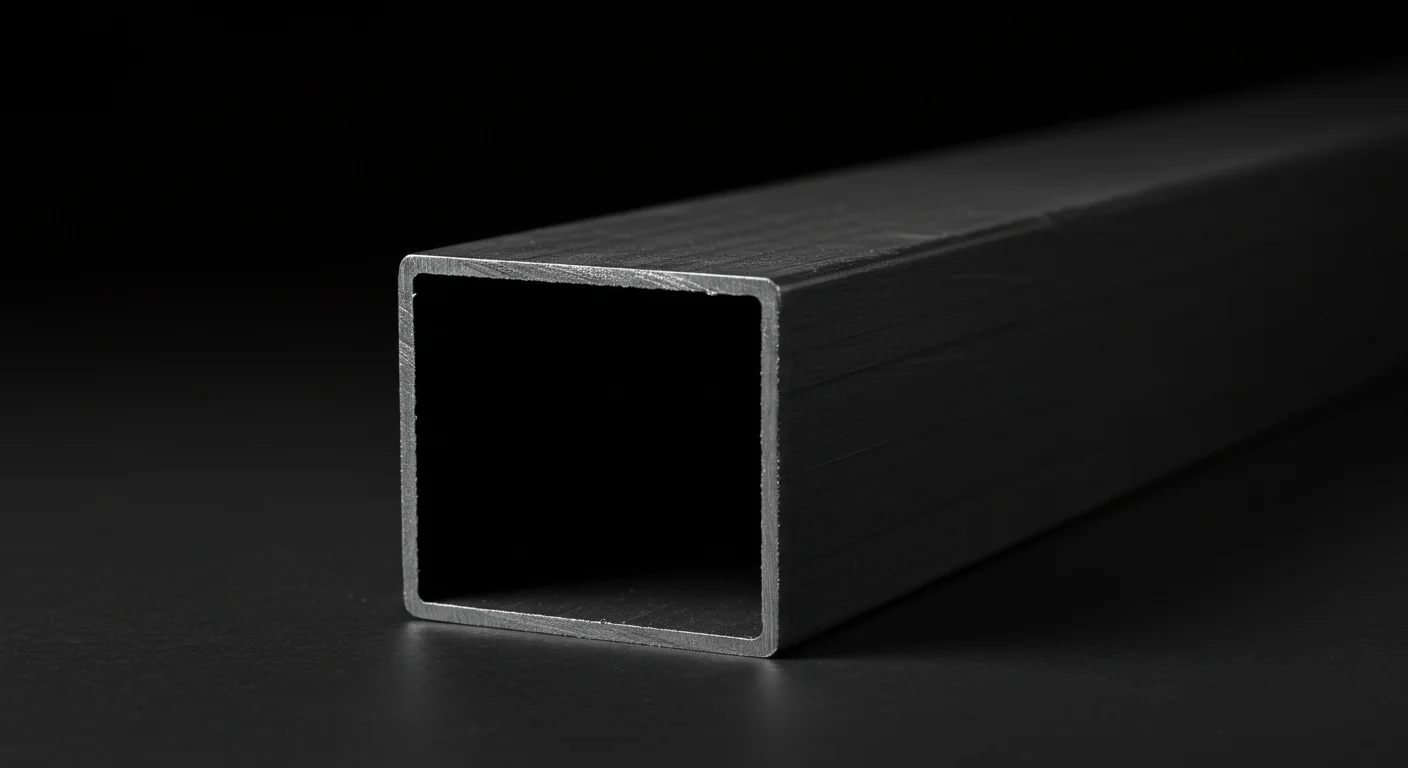To determine how much a 4×4 square tubing weighs, you need more than just the 4×4 dimension. This typically refers to the outer sides being 4 inches by 4 inches, but the weight critically depends on:


- Wall Thickness (t): How thick is the steel wall? Common thicknesses range from gauge sizes (like 14 gauge, 11 gauge etc.) to fractional inches (like 1/8, 3/16, 1/4). Thicker walls mean more weight.
- Length (L): How long is the piece of tubing? Weight is directly proportional to length. Often, calculations are done per foot or for standard stock lengths (like 20 ft or 24 ft).
- Steel Density (ρ): The exact type of steel affects its density. Standard carbon steel density is widely used for general calculations.
Calculation Method
The weight is calculated using the formula: Weight = Volume of Steel × Density of Steel.
1. Calculate the Cross-Sectional Area of Steel (A_steel):
For a square tube, this is the area of the outer square minus the area of the inner hollow square.
- Outer Side (S_outer) = 4 inches
- Wall Thickness = t (in inches) – This needs to be specified!
- Inner Side (S_inner) = S_outer – 2t = 4 – 2t inches
- Outer Area (A_outer) = S_outer² = 4² = 16 square inches
- Inner Area (A_inner) = S_inner² = (4 – 2t)² square inches
- Cross-Sectional Area (A_steel) = A_outer – A_inner = 16 – (4 – 2t)² square inches
2. Calculate the Volume of Steel (V):
Multiply the cross-sectional area by the length of the tube.
Ensure ‘L’ (Length) is also in inches for this step.
3. Determine the Density (ρ):
A common density for carbon steel is approximately 0.283 pounds per cubic inch (lb/in³).
4. Calculate the Weight:
Multiply the volume (in cubic inches) by the density (in lb/in³).
Weight (lbs) = {[16 – (4 – 2t)²] × L} × 0.283
Example Calculations
Let’s see how the weight changes with different wall thicknesses for a specific length, say, per foot (L = 12 inches).
Example 1: 4×4 Square Tubing with 1/8 (0.125 inches) Wall Thickness
- t = 0.125 inches
- A_steel = 16 – (4 – 2*0.125)² = 16 – (4 – 0.25)² = 16 – (3.75)²
- A_steel = 16 – 14.0625 = 1.9375 square inches
- Volume per foot (V) = 1.9375 in² × 12 in = 23.25 cubic inches
- Weight per foot = 23.25 in³ × 0.283 lb/in³ ≈ 6.58 lbs/ft
Example 2: 4×4 Square Tubing with 1/4 (0.25 inches) Wall Thickness
- t = 0.25 inches
- A_steel = 16 – (4 – 2*0.25)² = 16 – (4 – 0.5)² = 16 – (3.5)²
- A_steel = 16 – 12.25 = 3.75 square inches
- Volume per foot (V) = 3.75 in² × 12 in = 45 cubic inches
- Weight per foot = 45 in³ × 0.283 lb/in³ ≈ 12.74 lbs/ft
Conclusion
As shown, the weight of 4×4 square tubing varies significantly based on its wall thickness. A tube with a 1/4 wall weighs nearly twice as much per foot as one with a 1/8 wall. To get an accurate weight, you must specify the wall thickness (often given in gauge or fractions of an inch) and the desired length. If you have a specific piece, measuring these dimensions and using the formula provides the most reliable weight result. For estimates on square tubing, always clarify the wall thickness and length needed.
Key Specifications
- Standards and grades
- Dimensions and tolerances
- Surface finish
- Certificates (MTC)
Applications
Construction, machinery, energy and general fabrication — match material and finish to the operating environment.








